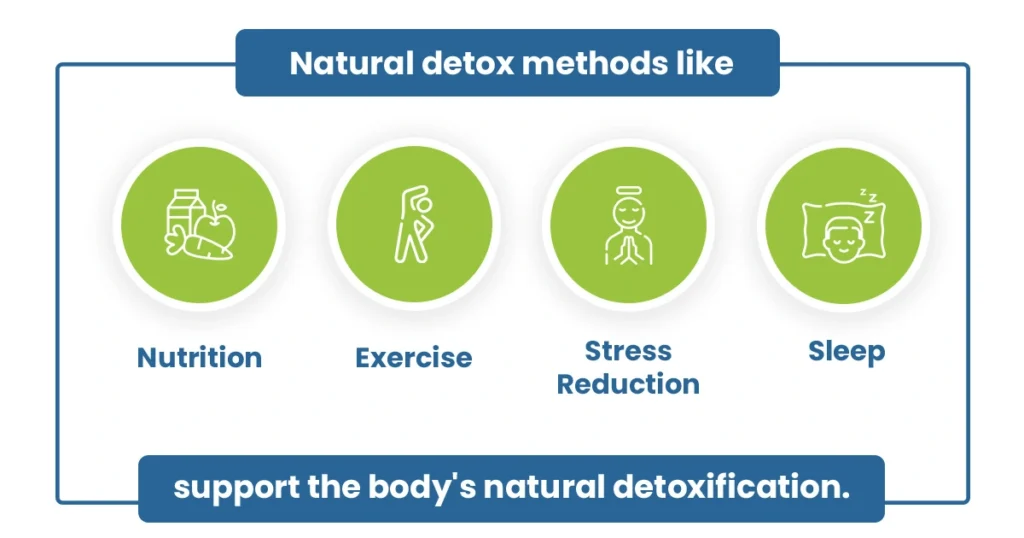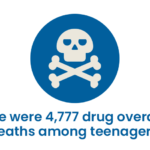One crucial aspect of achieving sobriety is detoxification, which involves eliminating harmful substances from your body. While detox can be challenging, understanding the relationship between sleep and successful drug and alcohol detox can enhance your recovery.

Sleep plays a vital role in detox, allowing your body to heal and regenerate. Quality sleep aids in the repair of damaged tissues and strengthens your immune system. During sleep, your brain processes and consolidates new information, helping you cope with withdrawal symptoms and cravings.
We will delve into the essence of sleep during drug and alcohol detox, explore practical tips to improve sleep quality, and discuss how a healthy sleep routine can enhance your overall recovery.
Key Takeaways
Quality sleep can launch a successful detoxification process. Here’s what you need to know:
- Detox is the first step in beating addiction, and professional support is essential for a successful detox process.
- Natural detox methods like nutrition, exercise, stress reduction, and sleep support the body’s natural detoxification.
- Psychological support plays a vital role during detox.
The Haven Detox-South Florida offers a secure place for healing and recovery. Call us at (561) 328-8627 and get support as you want.
Importance of Detoxification
Detoxification, or detox for short, is a critical step toward overcoming drug and alcohol addiction. It involves ridding the body of harmful substances and allowing it to heal and restore itself. The significance of detoxification cannot be overstated, as it sets the foundation for a successful recovery journey.
Statistics reveal the gravity of substance abuse in the United States (US). 19.3 million Americans, according to the National Survey on Drug Use and Health (NSDUH), struggled with a substance use problem in 2020.
The Centers for Disease Control and Prevention (CDC) reported that drug overdose deaths reached an alarming high of 93,331 in 2020, representing a 29.4 percent increase from the previous year.
Detoxification is crucial for several reasons. It helps manage the withdrawal symptoms when the body becomes dependent on drugs or alcohol. These symptoms can be worst and even life-threatening, making detoxification under professional supervision essential for safety.
Detoxification allows the body to eliminate toxins and restore its natural balance. By removing substances, the body can heal physically and mentally, paving the way for further treatment and recovery.
In addition to medical detox programs, various detox methods and therapies are available to cater to individual needs. Seeking professional help and support during detoxification increases the chances of long-term recovery success.
Risks and Side Effects of Drug and Alcohol Detoxification
Detoxification, the process of eliminating drugs and alcohol from the body, is a crucial step toward recovery from addiction. While detox is a positive and necessary step, being familiar with the potential risks and side effects that may arise during this process is pivotal.
Withdrawal symptoms are common during detoxification and can vary depending on the substance used and the individual’s overall health. These symptoms may include nausea, vomiting, tremors, anxiety, depression, insomnia, and intense cravings.
In some cases, withdrawal symptoms can be tricky and even life-threatening. That is why seeking professional medical assistance is highly recommended to ensure the safety and proper management of the detox process.
There are also specific risks associated with detox, such as dehydration, electrolyte imbalances, and nutritional deficiencies. Additionally, detox can have an emotional and psychological impact, leading to mood swings, irritability, and difficulty concentrating. Having a support system during detox is crucial for emotional support and guidance.
While detoxification’s risks and side effects should not deter individuals from seeking help, it is vital to approach detox under professional guidance. Medical professionals can assess individual needs, provide appropriate medications, and monitor progress to ensure a safe and effective detoxification process.
Medical Detoxification
Medical detoxification, also known as medically assisted withdrawal, is a specialized approach to drug and alcohol detoxification that involves professional medical supervision and medications to manage withdrawal symptoms and ensure a safe and comfortable detox process.
The primary goal of a medical detox is to help individuals safely withdraw from substances while minimizing the discomfort and risks associated with withdrawal. This approach is particularly beneficial for individuals with severe addiction, those dependent on certain substances with potentially dangerous withdrawal symptoms (such as alcohol or benzodiazepines), or those with underlying medical conditions that require close monitoring.
To develop a personalized detox plan, healthcare experts assess the individual’s health and substance use history during medical detox. Doctors may prescribe medications to alleviate withdrawal symptoms, reduce cravings, and stabilize the individual’s physical and mental well-being.
In addition to medication management, medical detox programs offer a supportive environment with round-the-clock medical supervision. This ensures that potential complications or emergencies can be promptly addressed, providing higher safety and care.
Medical detoxification is just the initial phase of addiction treatment. It should be followed by comprehensive rehabilitation programs to address the leading underlying causes of addiction and provide ongoing support for long-term recovery.
Natural Detoxification
Natural detoxification is an alternative to medical alcohol and drug detox, supporting the body’s natural detoxification processes through lifestyle changes and natural remedies. This method aims to cleanse the body of toxins without the use of medications or medical interventions.
While natural detoxification can complement professional treatment, it may not suit everyone, especially those with severe addiction or underlying medical conditions.
Exploring treatment options is a good idea if you or your loved one is going through drug addiction. Ask your doctor what is the best way to address alcohol use disorder and manage alcohol withdrawal symptoms.
Nutrition and Diet
Proper nutrition supports the body’s natural detoxification processes. A diet of fruits, vegetables, whole grains, and lean proteins provides essential nutrients and antioxidants that promote detoxification.
These nutrients help the liver, kidneys, and other organs function optimally to eliminate toxins from the body. In addition to the information, staying hydrated by drinking adequate water can aid in flushing out toxins and maintaining overall health.
Exercise
Regular exercise not only improves physical fitness but also supports detoxification. Physical activity stimulates blood circulation, which helps transport toxins out of the body through sweat and improves organ function. Exercise also boosts the release of endorphins, which can reduce stress and support mental well-being during detox.
Stress Reduction
Chronic stress can hinder the body’s detoxification process. Stress-reducing activities such as yoga, deep breathing exercises, meditation, or time in nature can help lower stress levels and promote overall well-being. By reducing stress, the body can allocate more energy and resources to detoxification.
Sleep
Adequate sleep is vital for overall health and detoxification. The body repairs itself, and the brain processes toxins and waste products during sleep.
Sufficient sleep also supports immune function and helps regulate hormone levels, which are essential for effective detoxification.
Incorporating healthy sleep habits, such as a consistent sleep schedule, creating a relaxing sleep atmosphere, and practicing relaxation before bed, can optimize detoxification.
Importance of Psychological Support During Detox
When undergoing drug and alcohol detoxification, recognize and address the psychological aspects of addiction. Psychological support plays a vital role in the success of the detox process and overall recovery journey.
Detoxification can evoke various emotions, including anxiety, depression, irritability, and intense cravings. These psychological challenges can be overwhelming and increase the risk of relapse if not effectively managed. Professional psychological support, such as counseling or therapy, provides people with the tools and coping strategies to navigate these emotional hurdles.
Therapeutic interventions during detox can help people understand the underlying causes of their addiction, develop healthy coping mechanisms and build resilience. Individual therapy, group therapy, and support groups offer a safe and non-judgmental margin to explore emotions, share experiences, and gain support from others facing similar challenges.
In addition to therapy, holistic approaches such as mindfulness practices, meditation, and relaxation techniques can help individuals manage stress, improve emotional well-being, and promote self-care during detox.
Psychological support also plays a crucial role in addressing co-occurring mental health disorders, often accompanying substance abuse. Providing appropriate treatment and support for these underlying conditions gives individuals a higher chance of successful detoxification and long-term recovery.
Inpatient Detox
Inpatient or residential detox provides people with a safe and supportive environment to undergo the initial stages of drug and alcohol withdrawal. One crucial aspect of inpatient detox is having a safe place to sleep.
During detox, people may experience intense withdrawal symptoms and emotional challenges. Inpatient detox facilities offer a secure, monitored setting where people receive round-the-clock medical supervision and support. It ensures their safety and well-being throughout the detox journey.
Having a safe place to sleep is essential during inpatient detox. It allows individuals to rest and recover from withdrawal’s physical and emotional stress. Adequate sleep is vital for the body to heal, recharge, and rebuild during this critical recovery phase.
Inpatient detox facilities provide comfortable, designated sleeping areas prioritizing privacy and tranquility. These spaces are designed to promote relaxation and ensure everyone has the opportunity to get the rest they need. Additionally, trained staff can address any concerns or difficulties individuals may encounter during sleep.
Inpatient detox facilities create an environment that supports detoxification and increases the likelihood of successful outcomes. It allows people to focus on their recovery while receiving medical care and supervision.
Essential Tips for Succeeding in Detox
Detoxification is a critical step toward overcoming drug and alcohol addiction. To enhance your chances of success during the detox process, consider the following five tips:
Seek Professional Guidance
Consult with healthcare professionals who specialize in addiction treatment. They can provide personalized advice, medical supervision, and support tailored to your needs.
Establish a Support System
Surround yourself with a supportive family, friends, or support group network. They can provide encouragement, understanding, and guidance throughout your detox journey.
Practice Self-Care
Bring respect for your physical and emotional well-being. Get enough sleep, eat nutritious meals, and engage in relaxation techniques or activities that promote stress reduction and emotional well-being.
Stay Hydrated
Consume plenty of water to flush out toxins and stay hydrated. Staying hydrated helps support the body’s natural detoxification processes and promotes overall health.
Follow Through with Aftercare
Detox is just the beginning. Engage in aftercare programs, such as therapy, counseling, or support groups, to address the underlying causes of addiction and maintain long-term recovery.
Remember, detoxification is a challenging but rewarding process. Following these tips, including getting enough sleep, can increase your chances of a successful detox and pave the way for a healthier, substance-free life.
Frequently Asked Questions (FAQ)
What are the five steps of recovery from drug addiction?
Acknowledgment: Recognize and admit the problem of addiction.
Seeking Help: Reach out to professionals or support groups for assistance.
Detox: Rid the body of drugs and manage withdrawal symptoms under medical supervision.
Rehabilitation: Engage in therapy, counseling, and behavioral interventions to address the root causes of addiction.
Maintenance and Relapse Prevention: Adopt healthy coping mechanisms, ongoing support, and lifestyle changes to maintain sobriety and prevent relapse.
What is the detoxification process?
Detoxification is the process of removing drugs or alcohol from the body. It involves managing withdrawal symptoms and addressing physical dependence on substances.
Detox can occur in various settings, such as inpatient facilities or outpatient programs, under the supervision of medical experts. The goal is to safely cleanse the body of toxins while minimizing discomfort and preparing individuals for further treatment and recovery.
How do you overcome an addiction?
Overcoming an addiction requires a multifaceted approach:
Admit the addiction and accept the need for change.
Reach out to professionals, support groups, or loved ones for aid.
Engage in therapy, counseling, or recovery programs to address underlying causes and develop coping strategies.
Adopt healthy habits, such as exercising, practicing self-care, and avoiding triggers linked with substance use.
Continuous work on recovery and staying committed to a sober lifestyle.
Experience Hope With The Haven Detox-South Florida
Are you or a loved one struggling with addiction? At The Haven Detox-South Florida, we offer comprehensive treatment and support to help you reclaim your life.
Our facility addresses addiction, mental disorders, stress, and alcoholism. We also provide personalized detox and residential programs. Benefit from our expert staff, evidence-based therapies, and the supportive environment we provide.
Whether you’re a veteran, seeking help for yourself or a loved one, or preparing for admission, call us at (561) 328-8627 and let The Haven Detox-South Florida be your trusted partner in the journey to lasting recovery.











